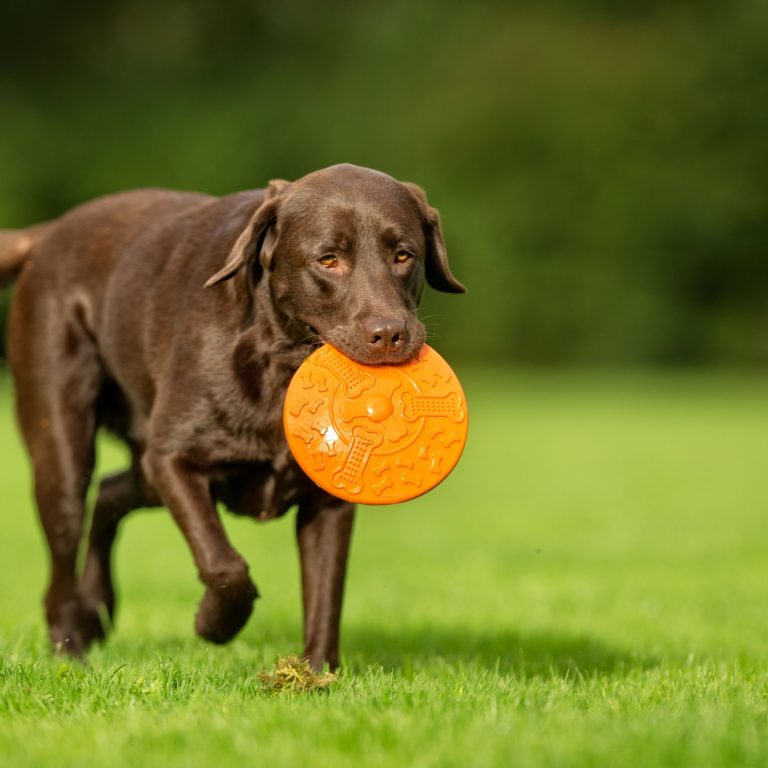Enhance Your Bond: Explore the Best Bird Tracking Solutions
Connecting with Your Feathered Friend
Owning a bird can bring immense joy and fulfillment to your life. These charming creatures have the ability to create a unique bond with their owners, making them beloved companions. In this section, we will explore the joy of bird ownership and the importance of building a strong bond with your feathered friend.
The Joy of Bird Ownership
Having a bird as a pet can be a truly rewarding experience. Birds are known for their beautiful colors, melodic songs, and playful personalities. Owning a bird gives you the opportunity to witness their vibrant plumage, listen to their cheerful chirping, and engage in interactive playtime.
Birds can bring life and vitality to your home. Their presence can brighten your day and provide a sense of companionship. Whether it’s watching them fly freely in your living room or sharing moments of affection, the joy of bird ownership is unparalleled. The unique behaviors and quirks of birds can create lasting memories and forge a deep connection between you and your feathered companion.
The Importance of Bonding
Building a strong bond with your bird is essential for their well-being and happiness. Birds are highly intelligent creatures that thrive on social interaction and mental stimulation. Establishing a bond with your bird not only enhances their quality of life but also deepens your own sense of fulfillment as a pet owner.
Bonding with your bird involves spending quality time together, engaging in activities that they enjoy, and gaining their trust. This can include gentle handling, providing a stimulating environment, and offering a balanced diet. By investing time and effort into bonding with your bird, you create a foundation of trust and understanding that strengthens your relationship.
Bird tracking solutions, such as GPS trackers for birds, can also play a role in enhancing your bond with your feathered friend. These innovative devices allow you to monitor your bird’s location, ensuring their safety and providing peace of mind. To learn more about bird tracking devices, visit our article on bird tracking devices.
By connecting with your feathered friend and nurturing a strong bond, you create a harmonious and fulfilling relationship. The joys of bird ownership and the deep connection you develop with your bird are what make the experience truly special. Cherish every moment spent together and continue to explore ways to strengthen your bond.
Introduction to Bird Tracking Solutions
If you’re a bird owner, you know how important it is to ensure the safety and well-being of your feathered friend. Bird tracking solutions can be invaluable in enhancing your bond with your pet and providing you with peace of mind. In this section, we will explore the basics of bird tracking technology and the benefits it offers.
Understanding Bird Tracking Technology
Bird tracking technology utilizes various devices and systems to monitor the movements and behavior of birds. These devices typically include GPS trackers, radio frequency trackers, and biometric trackers. Each type of tracker serves a specific purpose and offers unique features to help you keep track of your bird’s whereabouts.
GPS trackers for birds are equipped with global positioning systems that utilize satellites to determine the bird’s precise location. These trackers provide real-time information, allowing you to monitor your bird’s movements remotely. For more information on GPS wildlife tracking devices, check out our article on bird tracking devices.
Radio frequency trackers for birds use radio signals to track your bird’s location within a certain range. These trackers are particularly useful for bird owners who live in areas with limited GPS coverage. The trackers emit signals that can be picked up by a receiver, enabling you to locate your bird within a specified range.
Biometric trackers for birds utilize advanced technology to monitor various physiological parameters of your bird, such as heart rate, body temperature, and respiratory rate. These trackers provide valuable insights into your bird’s overall health and well-being, helping you detect any potential health issues early on.
Benefits of Bird Tracking Solutions
Bird tracking solutions offer a range of benefits for both you and your feathered companion. Here are a few key advantages:
-
Enhanced Safety: With bird tracking technology, you can quickly locate your bird in the event that it escapes or gets lost. This can significantly increase the chances of a safe recovery.
-
Behavior Monitoring: Tracking solutions allow you to observe your bird’s behavior patterns and identify any abnormal or concerning behaviors. This can help you address potential issues promptly and ensure your bird’s well-being.
-
Freedom to Explore: By using bird tracking devices, you can give your bird the freedom to explore outside of its cage or enclosure while still maintaining control and ensuring its safety.
-
Scientific Research: Bird tracking solutions contribute to scientific research and conservation efforts by providing valuable data on bird migration patterns, breeding behavior, and habitat preferences. Researchers can use this information to better understand bird populations and develop effective conservation strategies.
When considering a bird tracking solution, it’s important to evaluate factors such as the size and weight of the tracker, battery life, charging options, and range coverage. For more information on these considerations, refer to our article on bird telemetry systems.
By embracing bird tracking solutions, you can deepen your bond with your feathered friend and ensure their safety and well-being. Stay tuned for the next section, where we will explore the different types of bird tracking solutions available.
Different Types of Bird Tracking Solutions
If you’re looking to keep a close eye on your feathered companion, there are several types of bird tracking solutions available. These innovative technologies can help you monitor and track your bird’s movements, ensuring their safety and well-being. Let’s explore three popular options: GPS trackers for birds, radio frequency trackers for birds, and biometric trackers for birds.
GPS Trackers for Birds
GPS trackers for birds utilize Global Positioning System (GPS) technology to provide real-time location information about your bird. These trackers are lightweight and can be attached to your bird’s leg or harness. They use satellite signals to determine the exact location of your bird, allowing you to track their movement on a map.
One of the key advantages of GPS trackers is their accuracy and precision. You can receive updates on your bird’s location with minimal delay, ensuring that you can quickly locate them if they go missing or fly outside of their designated area. GPS trackers for birds often come with additional features such as geofencing, which alerts you if your bird strays beyond a predetermined boundary.
When choosing a GPS tracker for your bird, consider factors such as battery life, range, and the ability to withstand outdoor conditions. For more information on bird tracking devices, take a look at our article on bird tracking devices.
Radio Frequency Trackers for Birds
Radio frequency (RF) trackers for birds are another option to consider. These trackers use a transmitter attached to your bird’s leg or harness to emit radio signals. A handheld receiver is used to track the signals and determine the bird’s location within a specific range.
RF trackers are especially useful in areas with dense vegetation or obstacles that may hinder GPS signals. They offer a reliable way to track your bird’s movements, even in challenging environments. However, it’s important to note that the range of RF trackers is generally more limited compared to GPS trackers.
When choosing an RF tracker, consider the range, battery life, and any special features that may be offered. It’s also important to ensure that the tracker is lightweight and comfortable for your bird to wear. For more information on wildlife tracking devices, including RF trackers, check out our article on GPS wildlife tracking devices.
Biometric Trackers for Birds
Biometric trackers for birds take tracking to a whole new level by providing detailed insights into your bird’s health and behavior. These trackers can monitor parameters such as heart rate, temperature, and activity levels. By analyzing these biometric data points, you can gain a better understanding of your bird’s overall well-being and make informed decisions about their care.
Biometric trackers typically come in the form of lightweight sensors or devices that can be attached to your bird’s leg or plumage. They use advanced technology to collect and transmit data to a compatible device or app for analysis.
When considering a biometric tracker for your bird, it’s important to ensure that the device is safe, comfortable, and does not impede your bird’s natural movements. Additionally, look for features such as long battery life, data storage capacity, and compatibility with your smartphone or computer. For more information on bird telemetry systems, visit our article on bird telemetry systems.
By exploring the different types of bird tracking solutions available, you can choose the one that best suits your needs and helps you ensure the safety and well-being of your avian companion. Remember to consider factors such as size, weight, battery life, and the range of the tracker when making your decision.
Factors to Consider when Choosing a Bird Tracking Solution
When selecting a bird tracking solution, it’s essential to consider various factors to ensure you choose the right tracker for your feathered friend. Here are three key factors to keep in mind: size and weight, battery life and charging options, and range and coverage.
Size and Weight of the Tracker
When it comes to choosing a bird tracking solution, the size and weight of the tracker are crucial considerations. Birds come in different sizes, from small finches to large parrots, and it’s important to select a tracker that is appropriate for your bird’s size and weight. A tracker that is too heavy or bulky can impede your bird’s movement and cause discomfort.
Ideally, opt for a tracker that is lightweight and compact, ensuring that it doesn’t hinder your bird’s natural behavior or mobility. This way, your bird can move freely and comfortably while wearing the tracker, allowing for accurate tracking without causing any distress.
Battery Life and Charging Options
The battery life of a bird tracking solution is another vital aspect to consider. You’ll want a tracker that can provide sufficient battery power to track your bird’s movements effectively. This is particularly important if your bird has a wide range and spends a significant amount of time outside its enclosure.
Look for a tracker with a long battery life that can last for an extended period before requiring recharging. Additionally, consider the charging options available for the tracker. Some trackers can be charged using USB cables, while others may require specific charging stations. Choose a tracker with charging options that are convenient for you and align with your bird’s routine.
To explore various bird tracking devices and their specifications, you can refer to our article on bird tracking devices.
Range and Coverage
The range and coverage of a bird tracking solution determine the distance over which the tracker can accurately track your bird’s movements. Different trackers have varying capabilities in terms of their tracking range.
Consider the typical range that your bird explores and choose a tracker that can cover that distance effectively. If your bird has a larger territory or tends to fly long distances, opt for a tracker with a broader range. This will ensure that you can monitor your bird’s whereabouts even if it ventures far from home.
For more advanced tracking capabilities, you may want to explore GPS wildlife tracking devices. These devices provide precise location data and are suitable for tracking birds with extensive ranges. To learn more about GPS tracking options, you can visit our article on GPS wildlife tracking devices.
By considering the size and weight of the tracker, battery life and charging options, as well as the range and coverage, you can make an informed decision when choosing a bird tracking solution. Remember to prioritize the comfort and well-being of your bird while ensuring that the tracker meets your specific tracking needs.
Ensuring Safety and Well-being
When using bird tracking solutions, it’s important to prioritize the safety and well-being of your feathered friend. By following proper usage and training techniques, monitoring and maintaining the tracking device, and considering other essential factors, you can enhance the experience for both you and your bird.
Proper Usage and Training
Before introducing a tracking device to your bird, it’s crucial to ensure that they are comfortable and familiar with basic commands and handling. Proper training helps establish trust between you and your bird, making it easier for them to adapt to the tracking device.
Start by introducing the device in a controlled and stress-free environment. Gradually familiarize your bird with the device by allowing them to investigate it at their own pace. Associate positive experiences, such as treats or praise, with the presence of the device. This helps create a positive association and reduces any potential fear or anxiety.
Ensure that the tracking device is securely attached to your bird’s harness or leg band, following the manufacturer’s instructions. Regularly check the fit and condition of the harness or leg band to prevent any discomfort or accidents.
Monitoring and Maintenance
Regular monitoring of the tracking device is essential for the safety and well-being of your bird. Keep track of the device’s battery life and charging schedule to ensure that it remains functional at all times. Some devices may have a mobile app or online platform that allows you to monitor your bird’s location and activity. Familiarize yourself with the features of the tracking device to make the most out of its capabilities.
Perform routine maintenance on the tracking device as recommended by the manufacturer. This may include cleaning the device, checking for any signs of wear or damage, and ensuring that it remains securely attached to your bird’s harness or leg band.
Other Considerations for Bird Owners
In addition to using bird tracking solutions, there are other factors to consider as a responsible bird owner. Provide a safe and stimulating environment for your bird by offering a spacious cage, engaging toys, and a balanced diet. Regular veterinary check-ups are important to monitor your bird’s health and address any concerns.
It’s also beneficial to educate yourself about bird behavior, natural habitats, and potential hazards. This knowledge helps you create an environment that caters to your bird’s needs and minimizes potential risks.
By ensuring proper usage and training, monitoring and maintaining the tracking device, and considering other essential factors, you can enhance the safety and well-being of your feathered companion. Remember to consult the manufacturer’s guidelines and seek professional advice when necessary.
For more information on bird tracking solutions and other innovative pet technologies, check out our articles on bird tracking devices and gps wildlife tracking devices.







